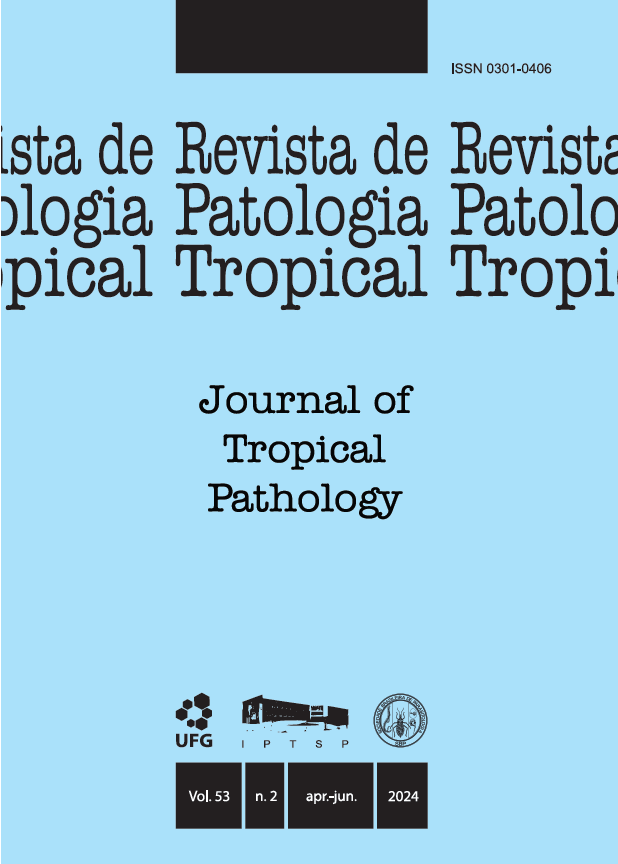Epidemiological profile and spatial analysis of probable cases of dengue registered from 2010 to 2021 in the state of Maranhão
DOI:
https://doi.org/10.5216/rpt.v53i2.76833Resumo
Dengue is a disease of viral etiology transmitted by mosquitoes, with a high incidence in tropical countries. Dengue has great epidemiological importance in the Americas and in Brazil. The goal of this study was to analyze the spatial distribution and to describe the epidemiological profile of probable cases of dengue in the State of Maranhão from 2010 to 2021. Statistical analysis through non-parametric tests and spatial analysis were performed using the Moran’s Global Index and Local Indicators of Spatial Association (LISA) and Space-time Scan statistic. Data were collected from the Department of Informatics of the Unified Health System in Brazil (DATASUS) between 2010 and 2021. The highest number of probable cases occurred in 2016 (23,938) and they were concentrated in the first half of each year. The female gender had the highest proportion of cases (54.9%). The cases predominated in the group of people aged between 20 and 39 years old (35.5%). People with incomplete elementary school degree were the most affected (43.0%). The brown race had more registered cases (80.7%). The municipality that had the highest incidence was Barra do Corda (7,418.5 per 100.000 inhabitants in 2016). In the local spatial analysis, 55.8% of the clusters of municipalities High- High occurred in the South region from the State of Maranhão. The municipality of Barra do Corda presented the highest relative risk (55.91) in the Space-time Scan statistic. People of the brown race, with incomplete schooling and young adults were the most affected by the dengue disease. The South region of the State showed greater epidemiological importance because it has representative clusters High-High.
KEY WORDS: Dengue; incidence; spatial analysis; State of Maranhao.
Downloads
Downloads
Publicado
Como Citar
Edição
Seção
Licença
The manuscript submission must be accompanied by a letter signed by all authors stating their full name and email address, confirming that the manuscript or part of it has not been published or is under consideration for publication elsewhere, and agreeing to transfer copyright in all media and formats for Journal of Tropical Pathology.

